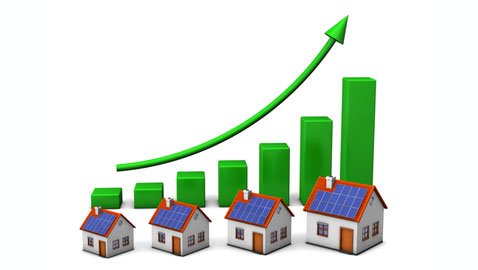
CBRE’s latest Regional Land report has said that the significant rebound in house prices over the last year indicates that the housing market is now fully in recovery mode.
After several years of minimal growth, it is expected that UK house prices will increase by 12% in 2014 before the rate of growth slows towards the end of the year.
The housing market will remain strong over the next five years, underpinned by an improving economy and an underlying lack of supply, the report said. Positive house price growth will continue across the UK from 2015 to 2019 at a more sustainable rate of 30% with London, the South East and the South West predicted to record the highest regional increases.
Jennet Siebrits, head of residential research at CBRE, said: “The sharp house price growth we have witnessed over the last year is typical at the start of a recovery, due to the release of pent-up demand. However, this rapid rate of growth tends to subside as the recovery becomes firmly established. As a result, we expect to see house price increases return to more sustainable levels over the next five years.
“London has dominated the housing market in recent years and recorded particularly strong house price growth, but there is now an evident ripple-out effect with increases recorded across all UK regions. While growth has generally been lower outside of London and South East, we expect some element of catch up from the other UK regions to occur over the medium to long term.
“Affordability is the key going forward and mortgage payments as a share of take home pay currently remain relatively favourable when compared with long-term trends, which partly reflects the low interest rate environment. When interest rates start to rise, we expect it to be at slow and considered increments so the impact on mortgage affordability may be quite minor and contained.”
Jasper Masters, head of land agency at CBRE, added: “Land markets across the UK continued to strengthen in 2014 due to a gradual pick up in market activity, with demand across all regions leading to an increase in values. However, although sentiment is high, planning remains a major headwind for the development industry. Under-resourced planning authorities and a backlog in the conversion of applications into implementable consents present a significant challenge.”
The report said commercial developers and funds looking for value uplift are buying land in London and obtaining consent, before trading to small niche developers backed by equity rich partners. Popular lots sizes range from £10-20m in Zone 1 and £5-15m in Zones 2-3, with many Zone 2 apartments now achieving £1,000 per sq ft.
Demand for land is still very strong in the South East with prices exceeding vendor expectations, although value growth has slowed fractionally. Listed housebuilders are continuing to expand into the region with a preference for areas with exit values of over £300 per sq ft, such as the western Thames Valley.
Limited land availability in the South West has had an inflationary effect on values. Funding for development continues to be challenging as banks remain risk averse, requiring substantial equity and personal guarantees to consider lending on speculative residential schemes.
Housebuilders are seeking out consented, short term conditional and longer term options in South Central with signs that some of the larger operators have now replenished their short term land banks. The focus remains on prime greenfield, but secondary and brownfield sites are also being looked at closely.
In the Midlands, prime locations are set to outperform the mid-market sector in terms of revenues and sales rates and land is being priced accordingly. However, there is potentially too much land coming forward in some of the secondary towns as a result of the NPPF proving too successful.
Land values continue to rise in the North because of increased competition rather than sales values, as smaller developers return to the market. Manchester City Centre is currently very active with a number of apartment schemes underway and sites being brought to the market.
Scotland’s planning system is starting to deliver for the first time in years. Consented schemes are in high demand due to the lack of new sites coming to the market, and land prices are gradually rising due to the speed of supply lagging behind the demand from the refinanced housebuilding sector.